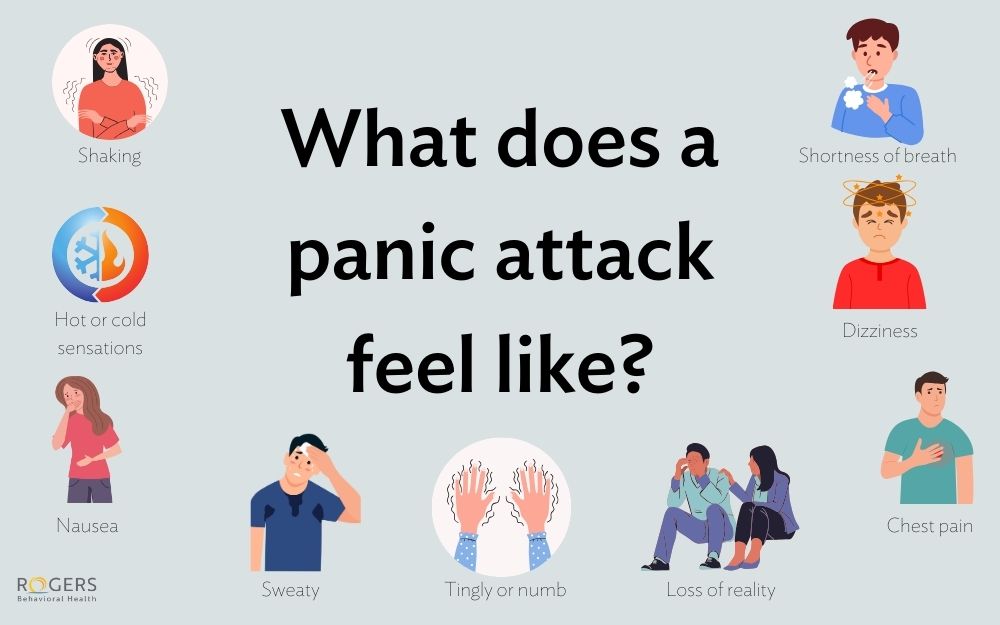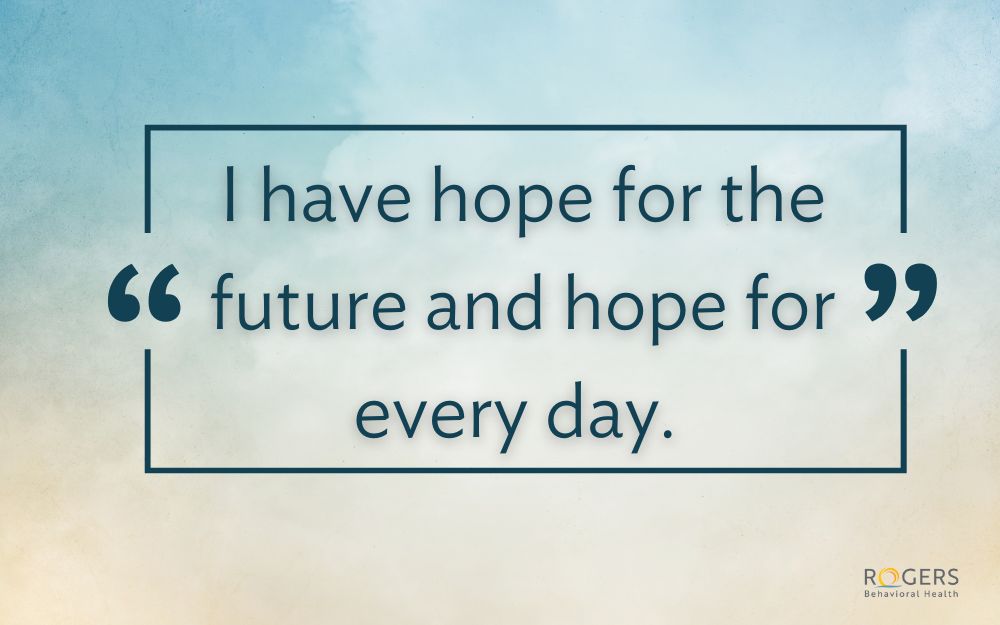Our Patients Speak: Stories of Recovery from Eating Disorders
Posted on 02/26/16 02:42:pmThis Eating Disorders Awareness Week, countless people from around the country will share their stories of recovery to reduce mental health stigma, encourage others to get a screening, raise awareness and even help in their own healing process. Since anorexia nervosa, binge eating disorder, bulimia, and other eating disorders affect all ages, genders and races, you might already expect that each person’s eating disorder journey is as unique as they are. But you may not expect the complete mind, body and soul transformation that each person undergoes on their path to wellness.
Mari’s Story
For college students who are balancing school, athletics, work and family responsibilities, life can be challenging enough. But for Mari, her obsessive dieting and exercise routines put a strain on her body and mind that was greater than any final exam or conference championship could ever have done.
As an eager college freshman, Mari began taking courses at the University of Wisconsin–Stout in September 2013, hoping to one day earn her degree in dietetics. She always had a passion for living a healthy and active lifestyle, so it was no surprise when Mari made the university’s tennis team as well. With so much going for her, Mari had only a promising future ahead, but then things got more complicated during Mari’s first winter break at home.
“I noticed that I had gained a few pounds, only a few, and I felt something switch inside of me,” says Mari. “I started to feel really insecure about myself and I felt myself becoming more conscientious and aware of my weight.” Like many young adults who gain a little weight their freshman year, Mari thought it was something that could easily be solved by dieting and maintaining an active routine. But as a year passed and her disordered eating progressed, Mari’s family began to notice how dangerously thin she’d become.
“My family had expressed concern for my health, but it wasn’t until I had two menstrual periods in one month that I realized my body wasn’t well internally—so then I decided to visit my school’s clinic,” says Mari. “The doctor who I was scheduled with had done my physical exam for the tennis team the year before. When she saw me, she immediately knew that something was wrong and ran an EKG and other tests.”
After realizing the severity of Mari’s symptoms, as well as her progressing heart failure, Mari’s physician suggested that she seek professional treatment. Mari says it wasn’t until she received a feeding tube in Rogers Behavioral Health inpatient program in Oconomowoc, WI, that she realized anorexia nervosa had taken over her behaviors.
Emily’s story
Not all people immediately realize the severity of their eating disorder when they first begin treatment. That was the case for Emily, another young college student.
“I began seeing a psychiatrist my junior year of high school for my anorexia, which had begun to develop when I was ten years old,” says Emily. “I also received treatment in an inpatient program, but I put a lot of effort into convincing my family and my doctor that I had been restricting my diet for attention—that I didn’t really have an eating disorder. I became very good at tricking myself and others, but in reality my life revolved around the personal list I had made on ‘How to Be Perfect.’”
When Rogers began offering eating disorder services close to Emily’s home in Tampa, FL, her psychiatrist suggested that she try the more intensive treatment available at Rogers Behavioral Health. Emily agreed, “I decided that this would be my ‘practice run’ for taking treatment seriously.”
After taking a semester off of school and work, Emily was ready to fully commit to her wellness. When Emily met her treatment team in Tampa’s partial hospital program, she realized that she could no longer remain emotionally disengaged. “Right away, my team knew that I needed help creating an emotional baseline and they developed an ‘emotion wheel’ that I still use today to help express what I’m feeling,” she says.
While in treatment, Emily found great help from her group therapy sessions, her faith, and her family. “Even now, when I sit at the dinner table and feel myself struggling with a certain food, my little brother looks up at me with the biggest smile because he knows when I need the extra reassurance,” says Emily. “And that’s enough to help me stay on track.”
Denise’s story
Not all people with eating disorders like Emily and Mari are college-aged, female, or even have the support that comes with living with parents and siblings. Rogers is known for its treatment of males with eating disorders, and Denise represents the less stereotypical older woman with these challenges.
At the time, Denise was a mother in her mid-twenties when she had a conversation with a friend about purging and decided that it might be a good way to get back to her pre-baby weight. “I had four kids and I hadn’t gotten any results from dieting,” she says. “What started out as my method for weight loss eventually turned into a pattern of binging and purging up to 20 times a day, for 15 years.”
In Denise’s early forties, she developed depression after experiencing an “empty nest,” which caused her to lose her appetite. With no desire to eat, Denise’s bulimia was replaced with anorexia nervosa. Still believing that she didn’t have an eating disorder, Denise lost consciousness while driving her daughter. Her daughter then grabbed the wheel and steered them both to safety from the passenger seat.
“It wasn’t until I began receiving residential treatment at the Eating Disorder Center that I began to acknowledge that I had an eating disorder,” she says. “While receiving treatment and doing a lot of personal discovery, I found out a lot of the reasons of why I had an eating disorder. I always say that my birth certificate says ‘Rogers’ on it.”
Moving forward
Denise says she learned a lot from both younger patients like Mari and Emily, as well as middle-aged patients like herself. “I also found that the art therapy I received brought out feelings in me that I didn’t realize I had,” she says. “At first, the thought of creating art was scary, but I found out that I’m actually pretty creative. Today I create mosaics, I’ve illustrated a children’s book and I’ve even written my own book.”
Emily has found that she continues to make progress in her recovery by sharing her story and donating her time to others. “It’s so rewarding for me to volunteer in the Tampa community and right now I’m a mentor at a girl’s juvenile facility,” she says. “People who have really changed my life were complete strangers to me and I want to continue sharing my faith and my experience with others.”
Mari has also emerged from her treatment transformed with a newfound career choice and personal cause. “Because of the treatment I received at Rogers, I’ve changed my major from dietetics to psychology,” she says. “My family and I can’t believe how far I’ve come and I’m just so passionate about eating disorder treatment that I want to be dedicated to this my entire life. I know I’ve already touched lives and I just want to continue to give hope to other people.”
Learn more about how we treat eating disorders at Rogers Behavioral Health.
For admission information or a free screening, call 800-767-4411, or submit an online screening request.
If you do not feel your child needs treatment right away, but may be concerned, we offer online quizzes to possibly provide some relief. While these quizzes do not provide a diagnosis, it could be the first step in finding the treatment you may need. Take our online Eating Disorder Quiz today.
Share this article:



